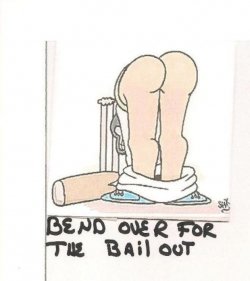glockmail
VIP Member
- Banned
- #21
Wow you're out of touch on this one babe. The Democrats forced the banks to loan to poor quality credit, and required Fannie and Freddie to buy them.quite the opposite,
it was the lenders, many not even banks, that BEGGED Fannie mae to cover more subprime loans or lower standard requirement loans ....
The actual history of this thing, via an article in your beloved New York Times written in 1999:
http://www.usmessageboard.com/polit...illy-loses-it-on-barney-frank.html#post824762In a move that could help increase home ownership rates among minorities and low-income consumers, the Fannie Mae Corporation is easing the credit requirements on loans that it will purchase from banks and other lenders.
The action, which will begin as a pilot program involving 24 banks in 15 markets -- including the New York metropolitan region -- will encourage those banks to extend home mortgages to individuals whose credit is generally not good enough to qualify for conventional loans. Fannie Mae officials say they hope to make it a nationwide program by next spring.





